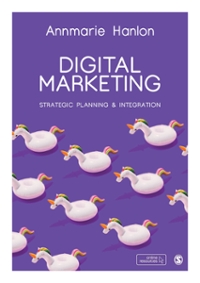In 2008 Airbnb was officially launched as an alternative to hotel rooms. The company encouraged people with
Question:
In 2008 Airbnb was officially launched as an alternative to hotel rooms. The company encouraged people with spare rooms to rent their space to individual travellers when busy events were taking place and where hotel rooms had sold out. There were some challenges along the way, with many negative stories online, and as a result new policies and greater guidance have since developed, building a strong and recognised brand.
As the business model was successful Airbnb adopted the SO ‘Maxi-Maxi’ strategy, focusing on their brand’s strengths and identifying opportunities to move into new markets.
They realised business users were adopting Airbnb for business travel. There was an opportunity to adapt the individual leisure traveller product to the business market. Executing the Maxi-Maxi strategy required investment and changes to address the needs of the new market:
• Third-party booking tools, because the person making the booking is not always the person travelling
• Self check-ins for late arrivals
• Business-friendly receipts noting all tax details • One-click expenses so that charges are immediately billed to the company, not the employee • Focusing on business requirements, including Wi-Fi, laptop-friendly workspaces • Group trips, so teams could easily identify suitable accommodation • Promotion on the website Airbnb’s website claimed that over 250,000 companies have now used this facility.
Questions
• Can you think of an example where an organisation has expanded to harness its strengths?
• Did this work or were changes needed at a later stage?
Step by Step Answer:






